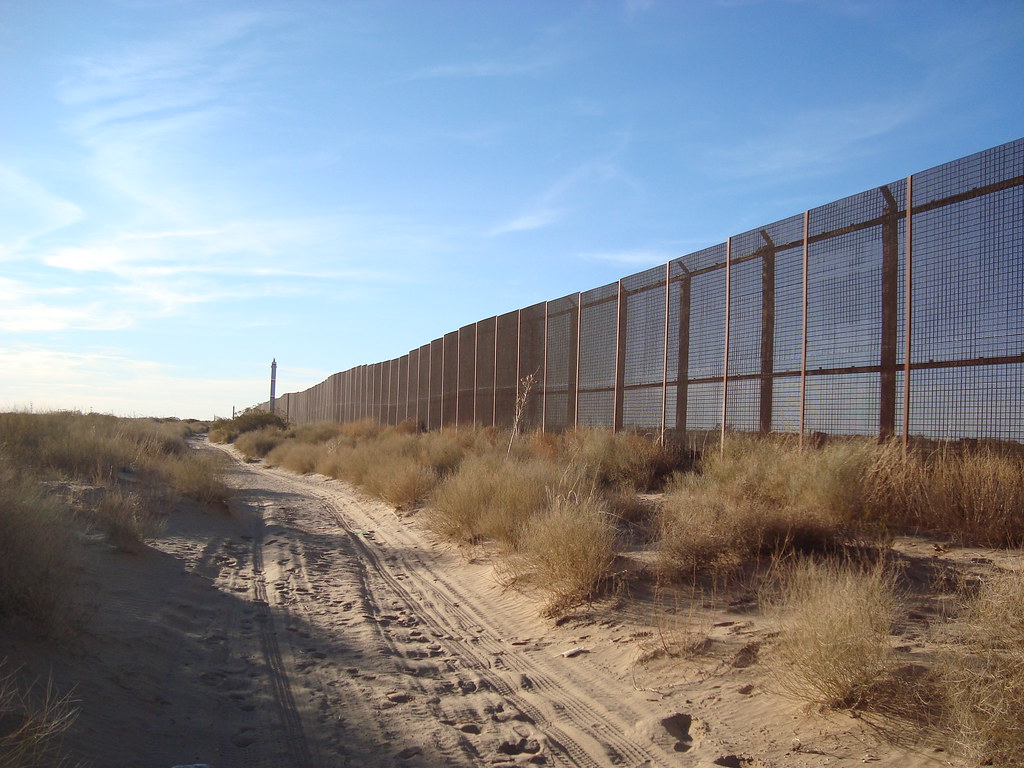Amidst escalating tensions between the U.S. Border Patrol and the state of Texas regarding the use of razor wire along the U.S.-Mexico border, Gov. Greg Abbott’s authorization of its installation has sparked an intense debate.
If you’re curious about Ohio’s stance on this issue—more than two dozen Republican governors and attorney generals, including Ohio’s very own Governor Mike DeWine and Attorney General Dave Yost, released statements on Jan. 25 and Jan. 29 supporting Abbott and Texas. The Jan. 25 statement reads, “We stand in solidarity with our fellow Governor, Greg Abbott, and the State of Texas in utilizing every tool and strategy, including razor wire fences, to secure the border.” When asked about the widespread support Abbott has received from governors and attorneys general nationwide, John Carroll University adjunct Professor of Communication, criminal attorney, and veteran Shannon Parker shared his perspective, stating, “I am of the opinion that Governor Abbott and those governors and attorneys generals that show his support are acting for political gain rather than any desire to affect anything.”
While Abbott asserts its effectiveness in deterring the growing number of illegal crossings, critics condemn the wire’s use as inhumane. Within the past year, a series of legal battles have ensued, culminating in a divided Supreme Court ruling in favor of the U.S. Border Patrol on Jan. 22. Meanwhile, the impeachment of Homeland Security Secretary Alejandro Mayorkas adds another layer of complexity to the ongoing dispute. Together, these developments underscore the deepening rift between Abbott and the Biden administration over border security and immigration policies.
The legal battles stemming from Abbott’s authorization of razor wire installation trace back to October 2023, when Texas Attorney General Ken Paxton filed a lawsuit against the Biden administration. Paxton contended that the U.S. Border Patrol’s “destruction” of the Texas border barrier illegally destroyed state property and undermined security. After going through district courts, Texas received a favorable ruling from the U.S. Court of Appeals for the 5th Circuit on Dec. 19, 2023 after being granted a preliminary injunction preventing the U.S. Border Patrol from cutting, destroying or otherwise interfering with the razor wire.
However, on Jan. 2, 2024, the U.S. Department of Homeland Security (DHS) asked the U.S. Supreme Court to vacate, or cancel, the U.S. Court of Appeals ruling. The DHS argued that federal law gives U.S. Border Patrol agents authority over the border and it cannot be overruled by state law under the U.S. Constitution. Ultimately, the Supreme Court, by a 5-4 vote, vacated the U.S. Court of Appeals ruling, thus allowing Border Patrol agents to resume cutting the razor wire on Jan. 22.
Yet, Mayorkas’ impeachment represents a rare event in American history, with it being the first time in nearly 150 years that a cabinet secretary has been impeached. Republicans have placed most of the blame on Mayorkas for the recent record-high migrant encounters, which over 3 months has added up to 988,800 estimated migrants crossing the U.S.-Mexico Border. They contend that the Biden administration has done away with policies previously implemented by the Trump administration meant to deter migrants and instead has adopted policies of its own that have attracted migrants.
On the other hand, advocates for Mayorkas, comprising mostly Democrats and legal experts, contend that the situation is primarily a matter of policy disagreement. They argue that Republican opposition stems from contention with the immigration strategies implemented by the Biden administration under Mayorkas. Supporters assert that such policy disputes should be up to voters to decide, rather than through the impeachment of a cabinet official. Ultimately, it is unlikely that Mayorkas impeachment will go through given that it’s now up to the Democrat-controlled Senate to decide.
Within the last month, Abbott and the Biden administration have clarified their positions on border security and immigration policies. On Jan. 5, the Biden administration announced their new enforcement measures to increase security at the border and reduce the number of illegal crossings. Their strategy emphasizes creating legal pathways for safe and orderly migration while implementing stricter consequences for those attempting unlawful entry.
Despite the DHS ruling on Jan. 22, Abbott maintains his stance, persistently advocating for state authority and the installation of razor wire along the U.S.-Mexico border. Abbott has since accused Biden of failing to fulfill his constitutional duty to protect the nation’s borders. “This is not over. Texas’ razor wire is an effective deterrent to the illegal crossings Biden encourages. I will continue to defend Texas’ constitutional authority to secure the border and prevent the Biden Admin from destroying our property,” Abbott tweeted.
Professor Parker, when asked about his solutions, further encapsulates the thoughts of many, “As for any recommendations to address border security and immigration, the only overwhelming conviction I have is that comprehensive reform is necessary that goes beyond partisan politics in a way that I do not believe we are likely to see.”
Unfortunately, it doesn’t look like there is a solution in sight that will please everyone while simultaneously addressing border security and immigration. The growing divide between Abbott and the Biden administration underscores the entrenched nature of this issue. In all likelihood, border security and immigration will remain contentious fixtures of partisan politics for the foreseeable future.


